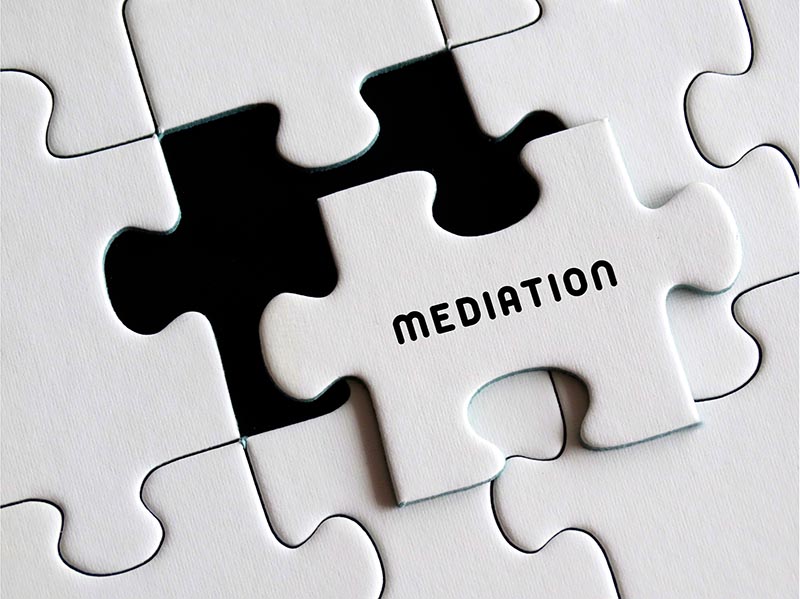Mediation refers to a method of resolving a dispute between two parties. It involves a third, neutral party who will facilitate discussions. It is often confused with arbitration, but the two are actually quite different from one another. The mediator is not required to make any decisions, and is only there to help both parties reach a compromise.

When is Mediation Necessary?
There are certain situations in which mediation is necessary. For example, it may be used in:
- Small claims court cases
- Family courts
- Housing courts
- Neighborhood justice centers
- Some criminal court programs
Mediation is intended to be very structured, and the goal is to reach a short-term solution. There may be a lot of bargaining involved, but the presence of the third party allows for less hostile communication.
What Happens After a Decision Has Been Reached?
Once both of the parties have agreed on a compromise, written documents are drawn up and signed. Every jurisdiction has their own laws about how binding a mediation agreement is. But in most cases, the document is admissible in a court of law. It is an enforceable contract.
There are many cases in which a judge will order both of the parties to work with a mediator to come to an agreement. When this occurs, the mediation agreement then becomes a court judgment.
What if a Decision Has Not Been Reached Through Mediation
While most mediation attempts are successful, there are those that fail. When this occurs, the parties must seek to resolve their issues through some other means. This might mean going back to court, as well as a lengthy legal process that follows.
Without knowing your specific case, it is difficult to say whether or not mediation is right for you. It is wise to talk with someone with a lot of experience in this field.
We can help you, and tell you whether or not you should consider mediation for your case. Please contact us today.

